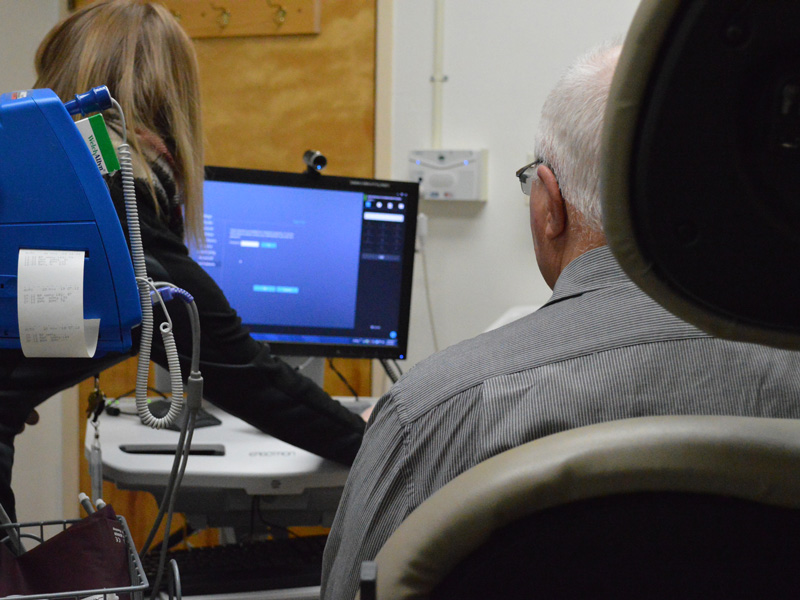Gary VanWinkle hadn’t even heard of IgA nephropathy until the day he was diagnosed with it about six years ago.
“I didn’t know it, but I was really tired and didn’t have a lot of energy,” VanWinkle said. “I didn’t realize I even had an issue until I had my first kidney stone, and then I ended up being in the hospital for it.”
Also called Buerger’s disease, the condition occurs when the antibody immunoglobulin A(IgA) builds up in the kidneys. Over time, the antibodies that build up cause local inflammation that can permanently interrupt the kidneys’ ability to filter waste from the blood.
Learn more: Kidney care at Sanford Health
VanWinkle was lucky that tests resulting from his kidney stones, including a biopsy, revealed IgA nephropathy in its early stages. While there is no cure for IgA nephropathy, treatment can help control symptoms and prevent further kidney damage.
“The material that normally kidneys would get rid of, mine collected and turned it into honey-like, syrupy-type stuff, which can turn into kidney stones if it doesn’t flush out,” VanWinkle said. “The end result — if it’s not taken care of — isn’t fun. I’d have to go through dialysis or a kidney transplant. So I really don’t want to get to that point.”
Anthony Rupp, M.D., a physician at Sanford Health, specializes in the treatment of kidney diseases. While he practices primarily at the Sanford Nephrology Clinic in Sioux Falls, South Dakota, Dr. Rupp helps VanWinkle manage his condition through telemedicine services at Sanford Westbrook Clinic in Westbrook, Minnesota.
What a telemedicine appointment is like
When he arrives at the clinic for a telemedicine appointment, VanWinkle gets his vitals taken by a nurse in one room and then goes to another room to visit with Dr. Rupp via a video call.
“It’s just like a regular doctor visit, in a way. You’re just talking to a TV instead,” VanWinkle said. “I usually do my labs beforehand and we go over any issues I may be having.”
Since VanWinkle’s kidneys need to be closely monitored for the rest of his life, it’s important to him that he doesn’t have to travel far from home for every appointment.
“I need to use telemedicine. It’s either that or I’d have to drive two and a half hours to get to Dr. Rupp. And to do that, I’d need to take a day off from work,” VanWinkle said. “For this, I don’t have to do that. I can go see him and get back to work.”
Convenience for ongoing care
Even across the miles, VanWinkle doesn’t feel any less connected to his care team.
“They keep track. They call me and make sure I get in for labs,” VanWinkle said. “I do my labs a week before my appointment so Dr. Rupp has the results to see where I’m at and if there’s anything that needs to be adjusted.”
His IgA nephropathy is currently well controlled, but VanWinkle knows he can call his nurse in Sioux Falls and she’ll set up an appointment for him anytime he needs one. Using telemedicine services has alleviated some of the travel burden associated with his ongoing care, so he can concentrate on other parts of his life — not just his kidneys.
Learn more
- New gift to Sanford Health will fund virtual care center
- Virtual care brings specialists to rural, underserved areas
- Driver delivers kidney despite being stuck in ND blizzard
…
Posted In Rural Health, Virtual Care, Westbrook
